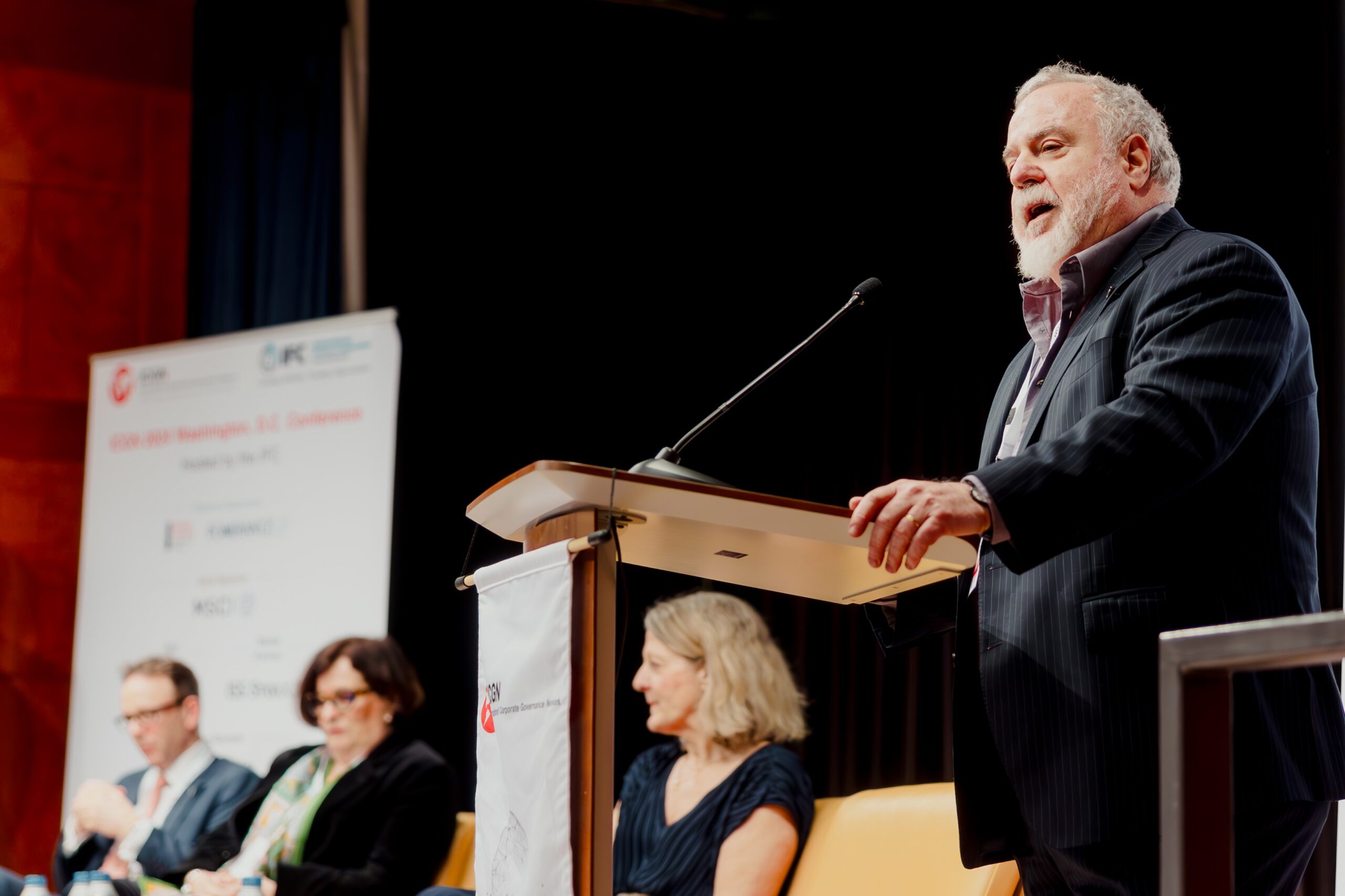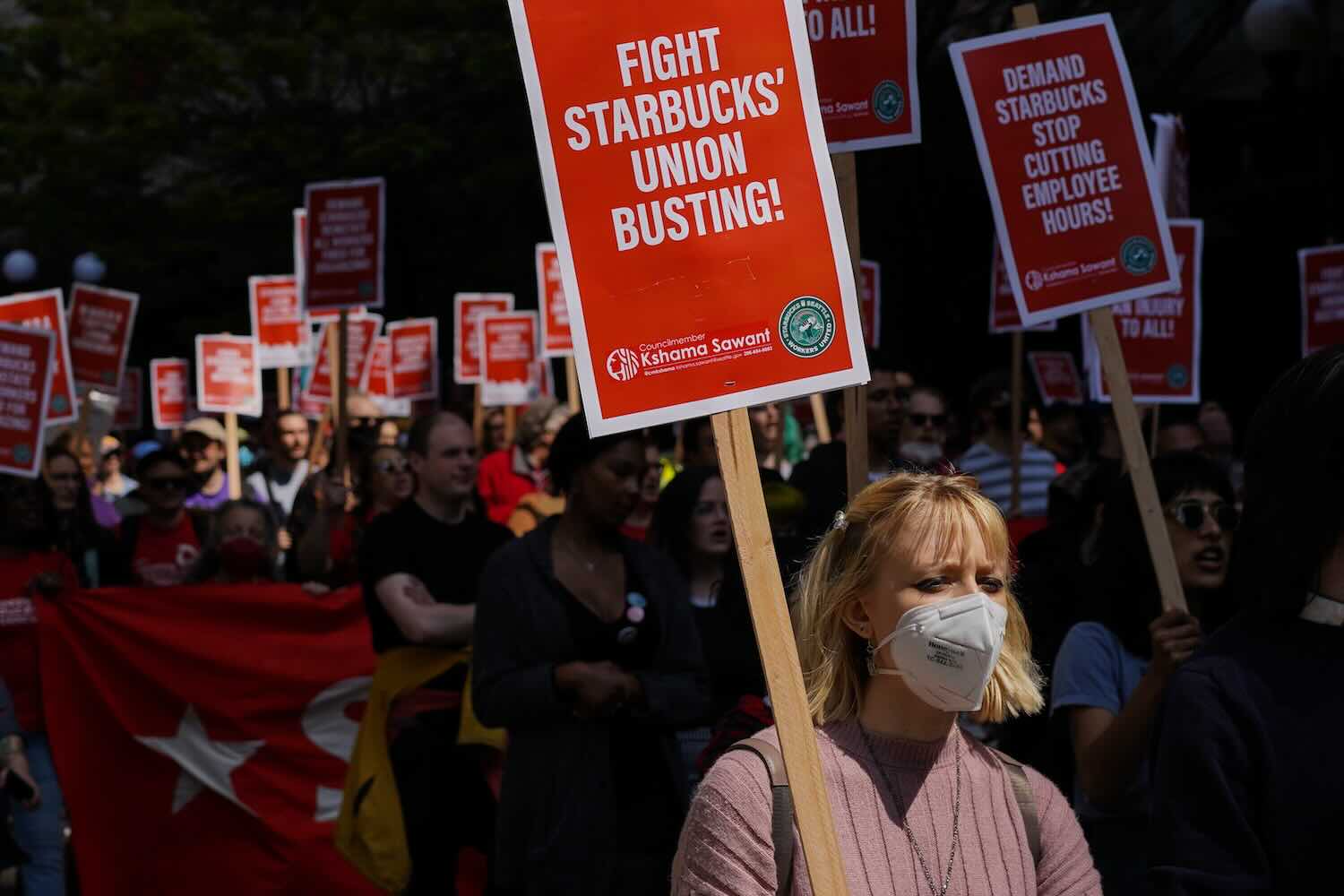(Note: Jon Lukomnik, author of “Moving Beyond Modern Portfolio Theory: Investing That Matters,” shared these thoughts upon receiving a lifetime achievement award from the International Corporate Governance Network in Washington, DC this month. These remarks do not necessarily represent the views of the ICGN.)
Eleven years ago, in 2013, I had the pleasure of addressing the ICGN members. Here is what I said:
“We need to replace traders with investors, and investors with owners. We need to return to investing strategies that favor real long-term growth, that improve not just our portfolios but the real economy as well.
“Unless we rebuke short-term greed and act as responsible owners, we will face increased and deserved criticism, a despoiled environment, a fractured society, and the reprobation of our children.”
I’ve tried to practice what I preach, helping to pioneer what is now called system-level investing. System-level investing recognizes that the health of the economy and the capital markets determines 75-94% of our return, much more than security selection and portfolio construction. Jim Hawley and I wrote the book on it, “Beyond Modern Portfolio Theory: Investing That Matters.” I consult with institutional investors about it. I teach a master’s course on system-level investing at Columbia.
Others also provide system level thought leadership – The Shareholder Commons, The Investment Integration Project, PRI, the PreDistribution Initiative, and, of course, the ICGN itself, which held a session on system stewardship at its Toronto conference last year.
Regulators around the world are paying attention. Asset owners and asset managers from the Netherlands to the UK to Canada to the US to Australia to Japan have adopted parts of system level investing theory. I can’t list everyone. So, I apologize if I’ve left out you or your organization, but I thank you.
But, here in the United States, some politicians have started an anti-sustainability crusade, saying we should be more short-term and externalize more costs. They probably don’t know the finance theory underpinnings of system-level investing, but it gets caught up in their anti-ESG zealotry.
Their campaign is both cynical and fundamentally ignorant economically. It would be laughable, except for the money and power behind it.
No one likes getting sued. I was speaking with a trillion-dollar-plus asset manager who had gotten a subpoena from a state attorney general. It cost them $1 million to comply with the document request and in legal fees. These are effectively SLAPP suits, strategic lawsuits against the public purpose. Just a few weeks ago, an ESG discussion at a prominent NGO was put off-the-record to protect the participants. People are being silenced.
So, to be clear: What I’m about to say is on the record.
Don’t be silenced
Let me tell you a quick story. Texas has a law that mandates state agencies stop doing business with asset managers whom the State Comptroller deems to have boycotted fossil fuel companies.
About a year-and-a-half ago, the Texas Land Commission wrote to the Comptroller asking what it should do about several BlackRock private equity funds it owned. The law has exemptions, and the Land Commission could use them to keep its investments in the funds. Despite that, the Comptroller wrote back, asking that the Commission “consider other paths.” Basically, he was saying, blacklist BlackRock.
Here’s the rub. Do you know what was in those private equity funds? Energy and power infrastructure investments. Oil and gas pipelines. So, if you follow the State Comptroller’s logic, he was suggesting divesting from an energy infrastructure fund… to protect the energy industry?
I guess.
Look, as an investor I know I’m going to be wrong a bunch of times. The market humbles us. So I accept different opinions. I accept disagreements. We can have rational discussions about the role of fossil fuels.
But what we can’t have – from either the right or from the left – are laws telling us to not consider risk and opportunity when we are fulfilling our fiduciary duty. Or telling us to invest with an official’s friends or to divest from their political enemies. In most places, that’s called corruption. Here, in the US, we call it dark money and campaign contributions.
So here is my updated message to all of you, 11 years later: Don’t be silenced. Sustainability opponents do not support market-based decisions, but crony capitalism. The ultimate result of that is an authoritarian kleptocracy that destroys economies.
Silence is their servant.
Truth and facts are the antidote.
For almost three decades, the ICGN has, in the words of civil rights legend Bayard Rustin, spoken truth to power. Now is the time to speak more truth. More often. More forcefully. Louder.











